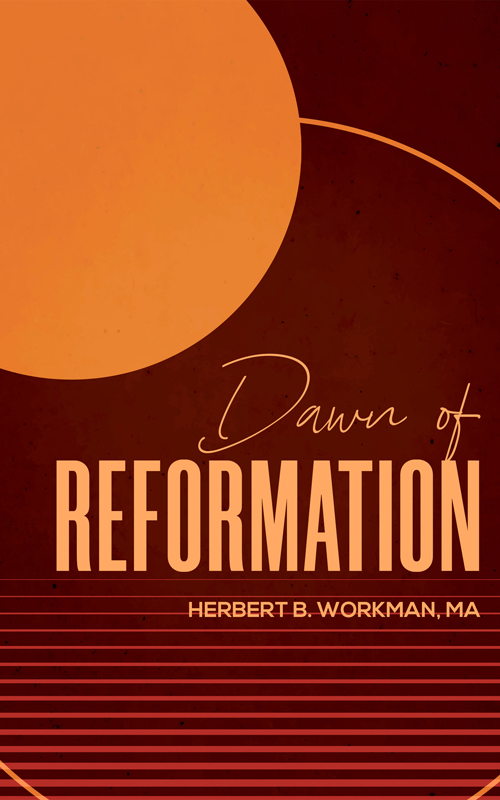 by HERBERT B. WORKMAN, MA.
by HERBERT B. WORKMAN, MA.
Vol. 1 THE AGE OF WYCLIF
In .epub, mobi & .pdf formats
Vol. 2 THE AGE OF HUS
epub, mobi & .pdf formats
HT William Gross, Onthewing
Herbert B. Workman's "Dawn of the Reformation" is a meticulously researched two-volume work that considers the crucial epochs leading up to the Reformation. Volume I, "The Age of Wyclif," and Volume II, "The Age of Hus," offer readers a profound exploration of the intellectual and theological currents that set the stage for the seismic shifts of the sixteenth century.
In "The Age of Wyclif," Workman intricately traces the life and influence of John Wyclif, often heralded as the "Morning Star of the Reformation." This volume is an essential read for understanding the early challenges to ecclesiastical authority and the nascent ideas that would later blossom into full-fledged Reformation thought. Workman highlights how Wyclif's emphasis on scriptural authority over church tradition laid the groundwork for later reformers. His critique of clerical wealth and corruption resonated widely, influencing not only his immediate followers, the Lollards, but also later movements. The book offers a detailed account of the political upheavals and controversies of the time, providing a backdrop against which Wyclif's ideas gained traction. The intersection of politics and theology is a recurring theme, showing how the two influenced and propelled each other. Workman doesn't shy away from examining the complexities and contradictions in Wyclif's character and work. He offers a balanced view, acknowledging both the strengths and limitations of Wyclif's contributions to the Reformation.
In "The Age of Hus," Workman shifts focus to the Bohemian reformer Jan Hus, whose martyrdom became a rallying cry for reform across Europe. This volume is rich with insights into the spread of reformist ideas beyond England and the growing momentum towards change. Hus's execution for heresy and the subsequent Hussite wars are explored in depth, showing how his death galvanized a broader movement for reform and resistance against papal authority. Workman examines the cross-pollination of ideas between the English and Bohemian reformers, illustrating the interconnectedness of the pre-Reformation world. He explores the ways in which Wyclif's writings influenced Hus and how Hus's ideas, in turn, spread across Europe. The book provides a thorough analysis of Hus’s theological positions, comparing and contrasting them with those of Wyclif. This comparative approach helps readers understand the evolution of reformist thought leading up to the Reformation.
Workman's "Dawn of the Reformation" stands out for its rigorous scholarship and engaging narrative style. Despite the dense historical material, Workman’s narrative is compelling, making the complex history accessible and engaging. His vivid descriptions of the personalities and events bring the era to life. The meticulous research and extensive use of primary sources lend credibility and depth to the work, making it a valuable resource for both scholars and enthusiasts of church history. By connecting the dots between past and present, Workman makes a strong case for the relevance of understanding the roots of the Reformation. Readers can appreciate the historical foundations of contemporary theological and ecclesiastical issues.
In conclusion, "Dawn of the Reformation" by Herbert B. Workman is a foundational text for anyone interested in the origins of the Reformation. Its detailed analysis, engaging narrative, and scholarly rigor make it a must-read for those seeking to understand the profound changes that shaped the course of Western Christianity.
